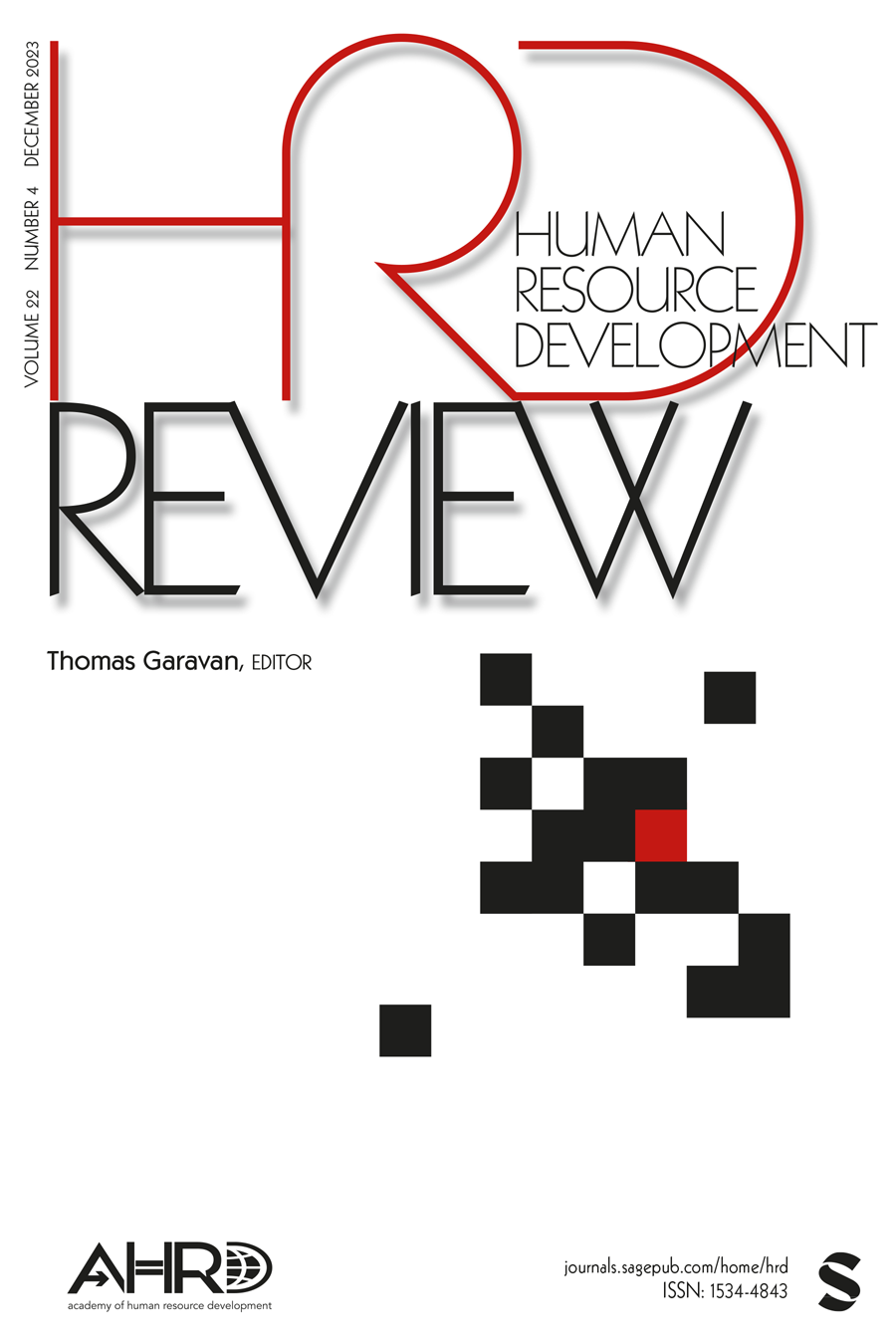驾驭人力资源开发定性研究的多种方法
IF 4.6
3区 管理学
Q1 MANAGEMENT
引用次数: 6
摘要
定性研究可以用于实现人力资源开发学术的各种目的,特别是当研究人员希望深入了解个人或群体的观点和经历时。鉴于研究目标的多样性,定性研究必然有多种方法。由于许多定性研究方法采用了类似的数据收集策略,如访谈和观察,并且产出可能看起来相似(例如,一组相互关联的主题),因此定性方法之间的重要差异可能会变得模糊或丢失。对人力资源开发及其他领域的定性研究人员来说,选择方法、建立适当的、相应的设计和描述方法是一个持续的挑战。本文对传统和新兴的人力资源开发定性方法进行了概述和比较,以澄清研究设计中的决策,指导方法的调整,并探索每种方法对人力资源开发理论和实践的不同贡献。本文章由计算机程序翻译,如有差异,请以英文原文为准。
Navigating Multiple Approaches to Qualitative Research in HRD
Qualitative research can be used to accomplish a variety of purposes for HRD scholarship, particularly when researchers wish to deeply understand the perspectives and experiences of individuals or groups of people. Given the infinite variety of research aims, there are necessarily multiple approaches to qualitative research. Because many qualitative research methods employ similar data collection strategies, such as interviews and observations, and outputs may appear similar (e.g. a collection of interrelated themes), the important differences among qualitative approaches can become muddy or lost. Making choices about approach, building an appropriate, corresponding design, and describing methods is an ongoing challenge for qualitative researchers in HRD and beyond. This article provides an accessible overview and comparison of select qualitative approaches in HRD, both traditional and emerging, to clarify decision-making in research design, guide methodological alignment, and explore the distinct contribution each approach can make for developing theory and practice in HRD.
求助全文
通过发布文献求助,成功后即可免费获取论文全文。
去求助
来源期刊

Human Resource Development Review
MANAGEMENT-
CiteScore
9.60
自引率
17.20%
发文量
35
期刊介绍:
As described elsewhere, Human Resource Development Review is a theory development journal for scholars of human resource development and related disciplines. Human Resource Development Review publishes articles that make theoretical contributions on theory development, foundations of HRD, theory building methods, and integrative reviews of the relevant literature. Papers whose central focus is empirical findings, including empirical method and design are not considered for publication in Human Resource Development Review. This journal encourages submissions that provide new theoretical insights to advance our understanding of human resource development and related disciplines. Such papers may include syntheses of existing bodies of theory, new substantive theories, exploratory conceptual models, taxonomies and typology developed as foundations for theory, treatises in formal theory construction, papers on the history of theory, critique of theory that includes alternative research propositions, metatheory, and integrative literature reviews with strong theoretical implications. Papers addressing foundations of HRD might address philosophies of HRD, historical foundations, definitions of the field, conceptual organization of the field, and ethical foundations. Human Resource Development Review takes a multi-paradigm view of theory building so submissions from different paradigms are encouraged.
 求助内容:
求助内容: 应助结果提醒方式:
应助结果提醒方式:


